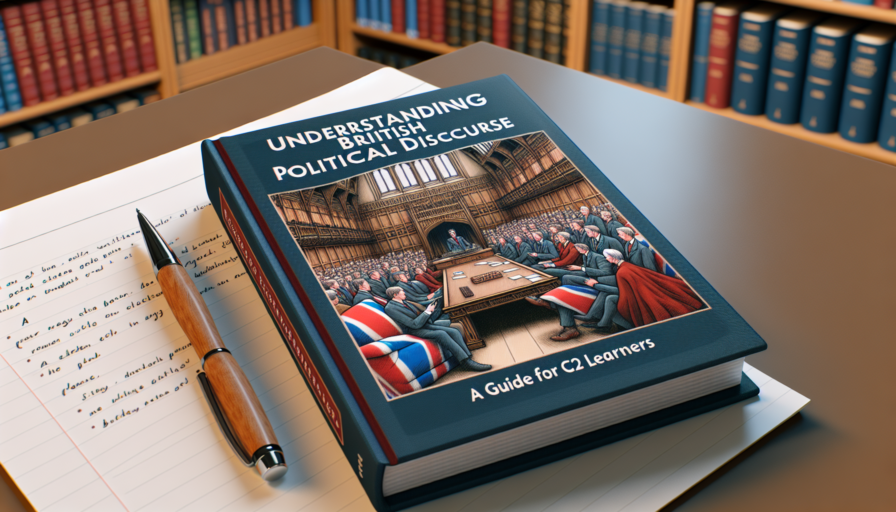
Contents
In our exploration of global communication, we encounter various styles and formats. British Political Discourse is a vital area of study, particularly for C2 learners who aim to deepen their understanding of how politics is articulated in the United Kingdom. This form of discourse encompasses a wide range of language practices and rhetorical strategies that shape political dialogues and debates.
At its core, British Political Discourse examines how political language conveys ideologies, influences public opinion, and mobilizes people around specific issues. Key components of this discourse include:
As C2 learners, we strive to analyze these elements critically, recognizing how they contribute to our broader understanding of British Political Discourse. Engaging with real-world examples allows us to appreciate the complexities and nuances of political communication in the UK, enhancing our language skills and cultural awareness.
When we explore the Key Features of British Political Discourse, it becomes evident that language plays a pivotal role in shaping public perception and engagement. The choice of words and phrases can be strategic, allowing politicians and public figures to connect with their audience on multiple levels. We observe that the use of rhetorical devices, such as metaphors and analogies, is prevalent. These elements not only embellish the speech but also help in framing complex issues in a more relatable manner.
Moreover, the Key Features of British Political Discourse reflect a unique style marked by wit, irony, and a touch of humor. British politicians often employ these stylistic nuances to both disarm their opponents and foster camaraderie with the electorate. By analyzing various speeches, we can identify patterns where humor is interwoven with serious policy discussions, enhancing relatability while ensuring the gravity of the issues addressed remains intact.
The context in which this discourse occurs is equally essential. We recognize that the Key Features of British Political Discourse are deeply influenced by historical and cultural precedents. The evolution of political debates, from the Commons to televised debates, presents a shift in how language and style are utilized. For instance, we can see a transformation in audience engagement techniques via social media platforms, allowing politicians to tailor their messages to diverse demographics, thereby expanding their reach and impact.
In conclusion, understanding the Key Features of British Political Discourse provides us with insights into the interplay of language, style, and context that shapes British politics. It invites us to appreciate how these elements not only construct narratives but also influence democratic engagement in our society.
In our exploration of British political discourse, we encounter a variety of common themes and topics that shape the landscape of contemporary politics. As advanced learners, it is essential for us to recognize how history, culture, and current events converge to influence political dialogue. Some of the most significant themes we notice include:
As we delve deeper into these themes, we can appreciate how each topic resonates with the electorate and influences public opinion. Our understanding of British political discourse is further enhanced by examining the nuances of party ideologies and the rhetoric utilized in debates, campaigns, and manifestos. It becomes clear that to engage effectively in this dialogue, we must be well-versed in both historical context and contemporary issues that shape our political landscape.
Furthermore, we recognize that engaging with the media plays a pivotal role in shaping public perception. Issues like media bias, digital politics, and the role of social media in influencing politics are significant in understanding how ideas circulate and evolve. By familiarizing ourselves with both traditional and modern forms of communication, we are better equipped to navigate the complexities of British political discourse and contribute meaningfully to discussions that impact our society.
When we embark on analyzing British political speeches, we engage with a distinctive blend of rhetoric, context, and language. This practice is essential for mastering C2 language proficiency, as it enhances our understanding of nuanced discourse and sophisticated vocabulary. By deconstructing these speeches, we can identify various techniques that not only improve our listening and comprehension skills but also enrich our written and spoken English.
One effective technique we can apply is recognizing rhetorical devices, such as metaphor, alliteration, and parallelism. These devices not only add flair but also emphasize key points. For instance, a speech that employs the technique of repetition can create a powerful rhythm that reinforces important messages. We can analyze these elements by:
Moreover, we should focus on the contextual elements surrounding each speech. Understanding the historical and cultural background, as well as the speaker’s intent, allows us to appreciate the layers of meaning. This analytical approach can involve:
By diligently applying these techniques, we enhance our ability to analyze and interpret British political speeches, thus elevating our language proficiency to a C2 level. This immersion in real-world language use not only sharpens our skills but also provides insight into the dynamic relationship between language and politics.
At Britannia School, we understand the importance of equipping ourselves with the right resources and tools for mastering British political discourse, especially as we aspire to achieve a C2 level of proficiency. To navigate the complexities of political discussions, we can leverage an array of resources that deepen our understanding and enhance our fluency in this vital area.
Firstly, we can explore a selection of books and literature that cater specifically to British politics. Here are some essential titles we can include in our reading lists:
In addition to reading, we have the opportunity to engage with dynamic multimedia resources that provide real-time analysis and discussions on British political matters. We can utilize:
Lastly, participating in discussion forums and debate clubs is crucial for practicing our skills. These platforms not only allow us to apply our knowledge but also help us refine our arguments in the context of British political discourse. As we immerse ourselves in these activities, we become more confident and articulate contributors to discussions surrounding UK politics.